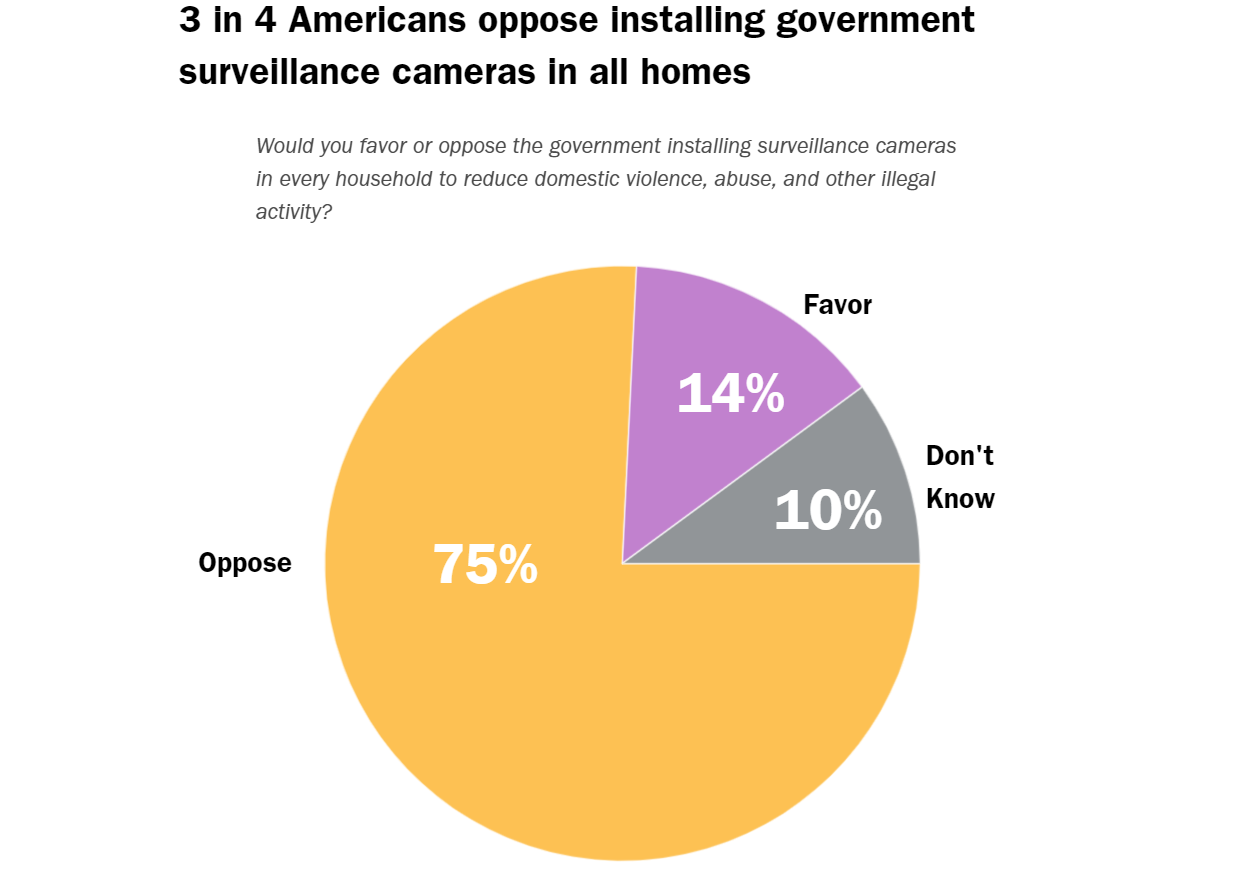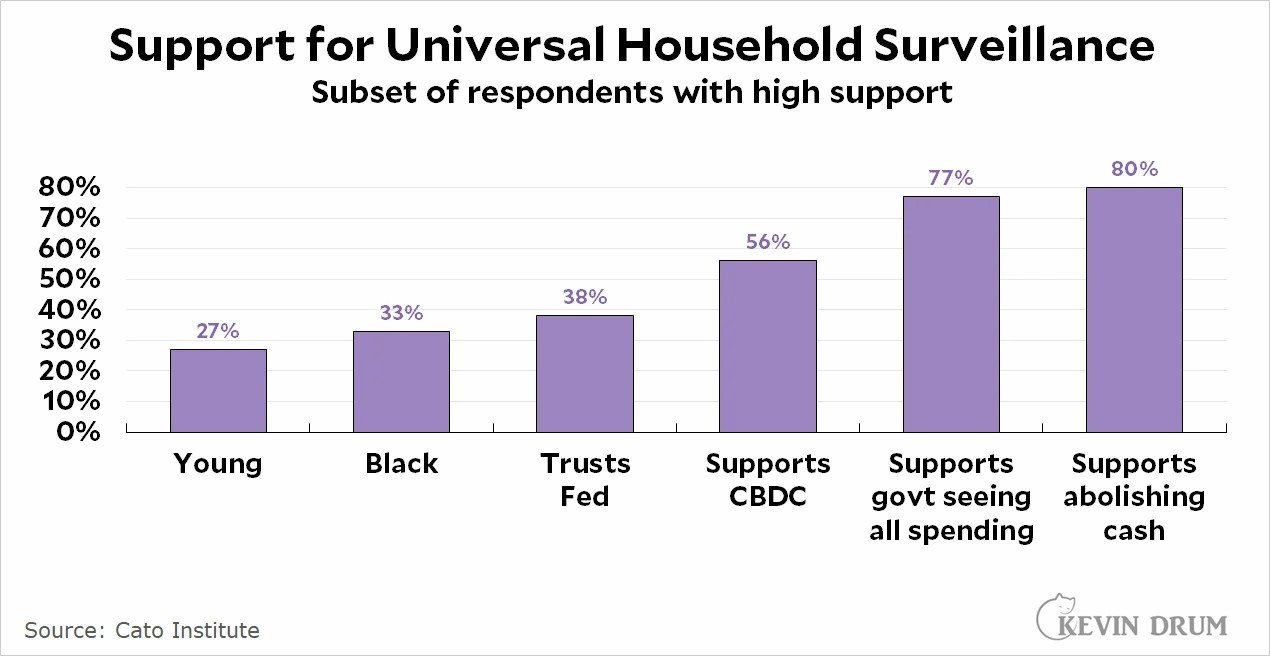In a newly released Cato Institute 2023 Central Bank Digital Currency National Survey of 2,000 Americans, they asked respondents whether they “favor or oppose the government installing surveillance cameras in every household to reduce domestic violence, abuse, and other illegal activity.” Not surprisingly, few Americans—only 14 percent—support this idea. Three-fourths (75 percent) would oppose government surveillance cameras in homes, including 68 percent who “strongly oppose,” while 10% don’t have an opinion either way.
But. Nearly a third of Gen Z Favors the government installing surveillance cameras in homes. That means that young Americans are TWICE as likely to support government monitoring people in their homes. In my opinion, the book 1984 should be required reading for school students. For those of them who can still read, that is.
In the book 1984, citizens of the fictional nation Oceania are under constant government surveillance, including in their own homes. Devices called telescreens display propaganda and record peoples’ actions, allowing the government to monitor people even in what should be the most private place they know—their homes. This type of behavior is meant to be an extreme example of what can happen when a government gains too much power, and opposition to such surveillance has been assumed to be overwhelming and obvious. But is it?
A full 27% of young people (age 18-34) support universal surveillance. A third of Black people (and a quarter of Latinos) support it. Among people who like the idea of the government being able to monitor all financial transactions, 77% support it.
I'm so astonished by this that I'm not sure what to say about it. It's not figuratively Big Brother, it's literally Big Brother. And it's not cameras in public places. It's about cameras inside every house in the country. How is it possible that so many people think this is a great idea?
What am I missing?
If these trends continue, the United States may confront a very different privacy landscape in the future. It is possible that at some point, the American public will be open to extreme government overreach in a world that feels scarier and more dangerous than before, whether or not it is. Thus, it is important to impart the learnings of the past (and present) about what can happen when government amasses too much power. Without explicitly telling younger generations about the risks and dangers of government surveillance they will forget these lessons and may find themselves repeating devastating mistakes of the past.
****
Source article.





